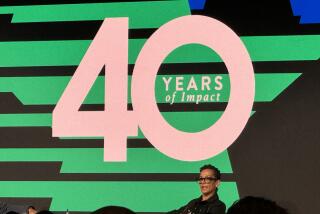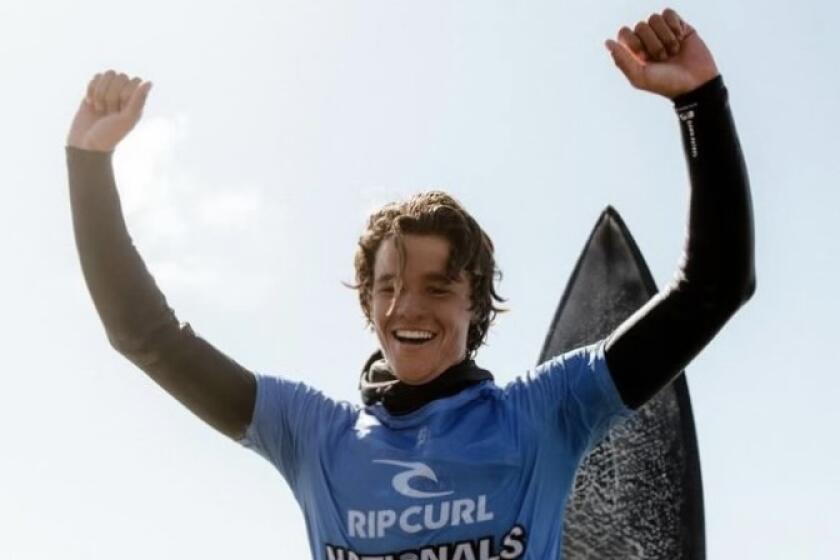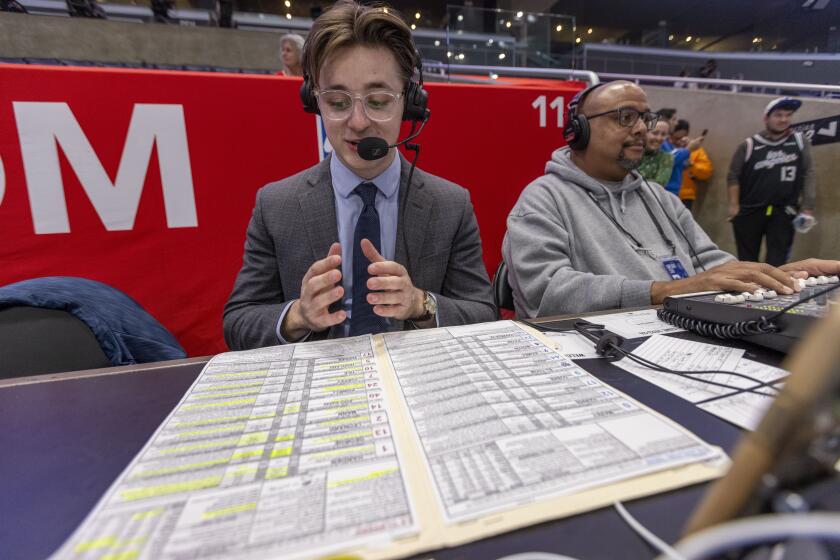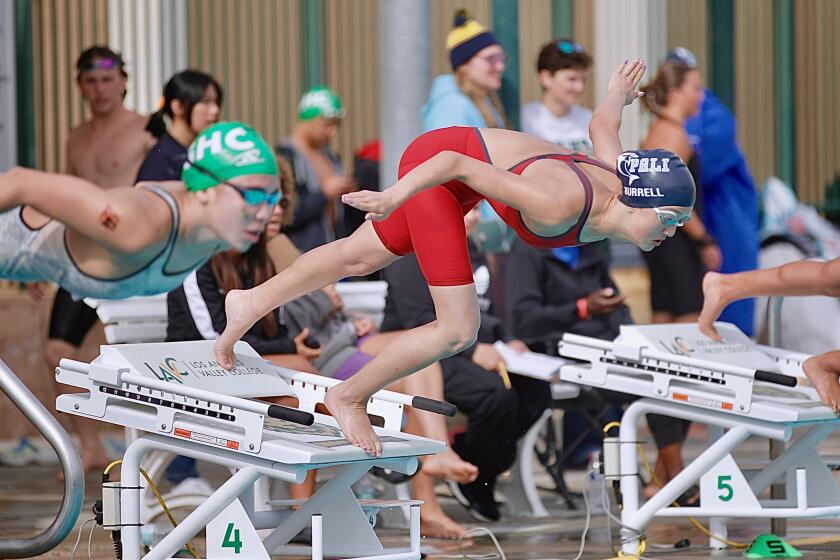Sebastian Coe is working to make London Games a winner
At the heart of the massive preparations for the London Summer Olympics, beneath the logistics of housing 10,500 athletes from more than 200 countries, providing venues to showcase their skills and transporting millions of people physically and emotionally, lies the personal vision of Sebastian Coe.
The chairman of the London Organizing Committee (known as LOCOG) hopes the athletes and spectators who come to his hometown will come to love it as he does, that they will see an ancient city with new sensibilities, a cosmopolitan place with homey touches that will survive past the Aug. 12 closing ceremony.
As a middle-distance runner Coe was a luminous star on the Olympic stage, dueling with compatriot Steve Ovett for more than a decade while winning gold medals in the 1,500 at Moscow in 1980 and at Los Angeles in 1984 plus silver medals in the 800 at both Games. As an administrator the 55-year-old Lord Coe could have another significant impact, staging an Olympics centered in the redeveloped areas of East London where his grandparents grew up.
“I’m a Londoner by birth and probably by instinct. I’m actually quintessentially a Londoner. A modern Londoner,” Coe, as lithe as in his competitive days, said during a visit to Los Angeles earlier this year.
“I’m immensely proud of the city. I actually just want people to come to London, either athletes or spectators, and go home having extracted what they wanted out of the Games. For the athletes, I want them to go home knowing that I left no stone unturned for them to compete at the highest level. I want the spectators to feel that I figured out their transportation needs and gave them great sports and all the other things.
“It’s an athlete-led atmosphere that slips over from the stadium into the streets, and that’s an important dynamic. I just want people to leave London seeing the city that I’m very proud of. Extraordinarily diverse. Multicultural. Three hundred different communities. Two hundred different languages spoken. And a city very much at ease with itself. I want London to be shown from all its traditional and historic values in a modern setting. That’s what I’d like people to see. A city at ease with itself.”
Not that organizing these Games has been easy.
The main venues are done, though some temporary sites must be constructed. Many test events have been held as rehearsals and the final six test events are scheduled in the next week.
Public sentiment, though, hasn’t always been favorable. A recent BBC Radio poll of 2,007 people found that 64% thought taxpayers had paid too much toward the Games’ costs, but 55% said the Games would prove good value in terms of benefits.
But the biggest flap was generated by the ballot-system ticket sales and computer woes that frustrated many would-be ticket buyers. Critics contend a disproportionate number of tickets were sold in higher price ranges and have demanded a breakdown of prices and allocations from LOCOG.
Coe said two-thirds of tickets were priced at under 50 pounds, or about $80, and said LOCOG will release detailed data after the final wave of tickets is released later this month. Some soccer tickets went on sale this week and the London Telegraph reported that the computer system made it impossible for many people to complete their purchases.
Coe said LOCOG faced many ticketing-related issues, including huge demand, and that his prime goal was to ensure events are well-attended. “I’m not having empty stadiums. I would consider that to be a sackable offense,” he said. “That was my overarching ambition, to make sure that we have full venues.… Secondly, that we have full venues but at affordable prices. I want people that look like they want to be there. That’s quite important.
“The third challenge was we’re a privately structured organization. It’s a fourth of our budget. Those are three quite challenging horses to ride at the same time. We did that.”
Coe won a significant victory in preventing the track from being removed from the Olympic stadium after the Games, seeing it as a bequest to the sport. He was vindicated when the International Assn. of Athletics Federations — track and field’s governing body — awarded the 2017 World Championships to London.
“We’ve nailed the legacy there,” Coe said. “That’s the one thing. Anybody winning in London this year I’m hoping — I know — that now they will be able to come back in 20 or 30 years’ time with their kids and their grandchildren and say, ‘That’s the track, that’s the stadium where I won it,’ and that’s important to me.”
He has returned to Los Angeles many times since 1984, though the Coliseum track he ran on was removed and replaced by seats long ago. During a visit in 2000 his desire to relive his memories was so strong he rented a car and drove over, only to find the fences locked.
“I probably shouldn’t tell you this but I climbed over,” he said with a mischievous smile.
He said he remains in contact with friends he made during the L.A. Games and cherishes memories he forged outside the competition.
“It was the yellow buses. It was always the yellow buses,” he said of the vehicles that transported athletes. “I remember coming back from one of my races ... sitting on with one or two people on these yellow buses and I sort of felt I was in a Norman Rockwell world, these yellow buses with sort of [David] Hockney-esque skies everywhere.”
He’s also an unabashed fan of Peter Ueberroth, head of the Los Angeles organizing committee. London plans have followed the Los Angeles model of using many existing facilities rather than building expensive new venues.
“He really created the modern Games for me,” Coe said. “We talk about the modern Games, you think 1896. But if you look at the template for sustainability and financial probity, financial resilience, Peter created the template.”
Ueberroth rode the success of the 1984 Games to become commissioner of Major League Baseball and launch a brief 2003 bid to become governor of California. Coe is a vice president of the international track federation and might run for the presidency but said his ambitions don’t extend beyond that.
“This is, for me, the end of the journey,” he said.
“I’m incredibly lucky. I know that. I make no bones about it. I competed at the Games twice. I’ve dealt with the fact that I didn’t get selected on a third occasion. I’ve written about the Games. Broadcast it. Been vice president of track and field, the biggest federation, and I’ve been a member of the Olympic commission at the games. And I bid for one.
“What else would I be doing now? I’m living a dream here.”
twitter.com/helenenothelenMore to Read
Get our high school sports newsletter
Prep Rally is devoted to the SoCal high school sports experience, bringing you scores, stories and a behind-the-scenes look at what makes prep sports so popular.
You may occasionally receive promotional content from the Los Angeles Times.







